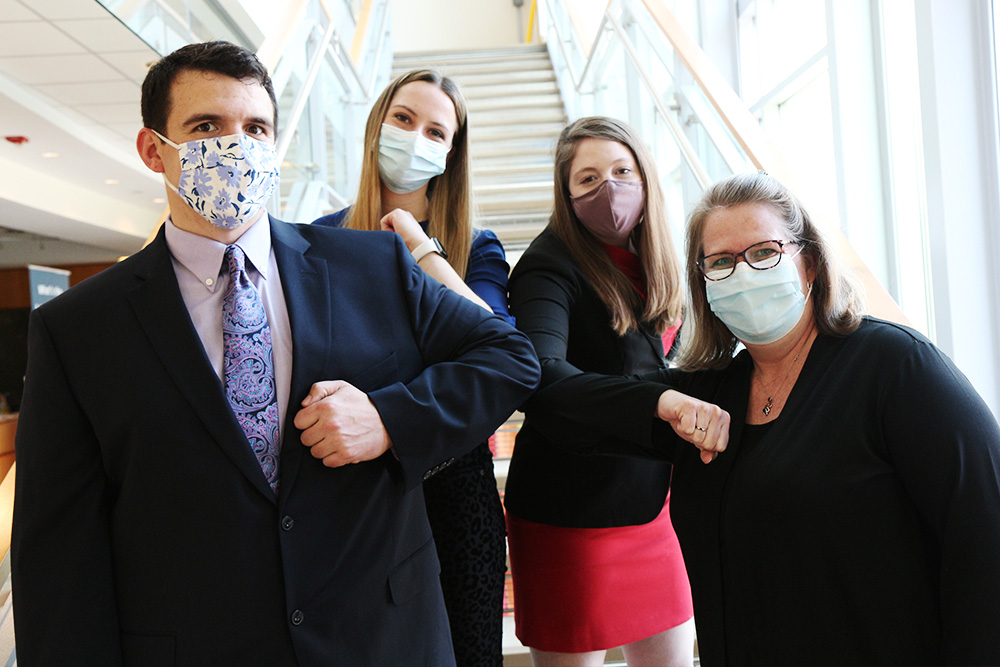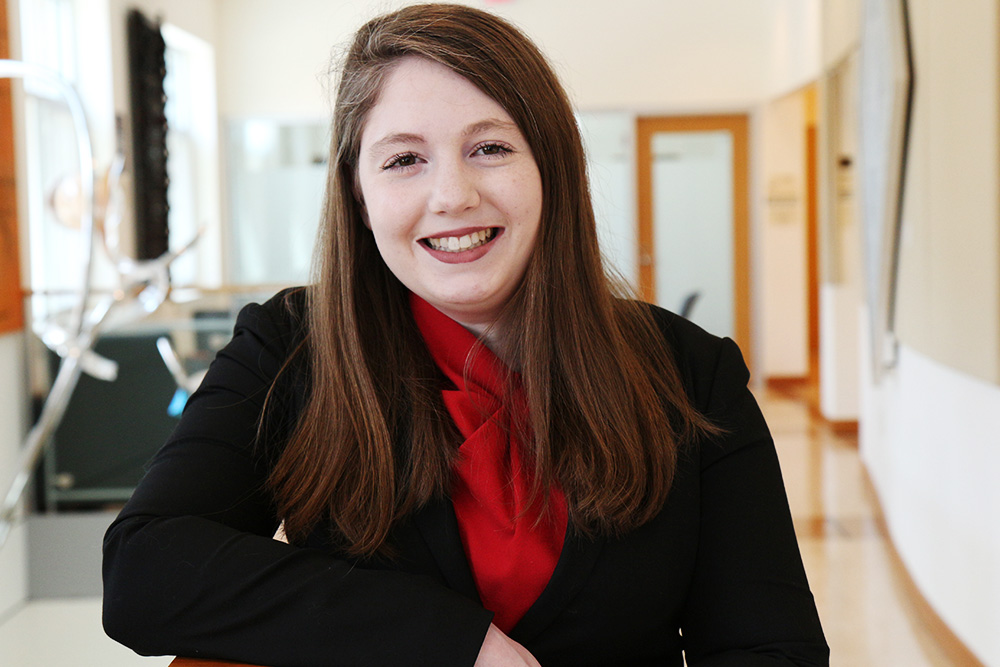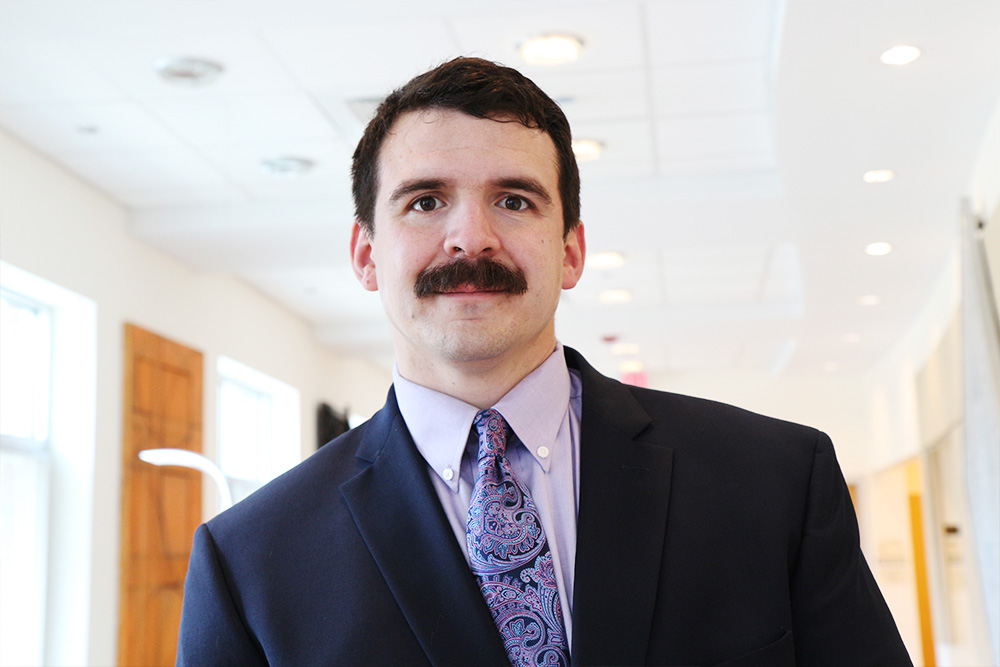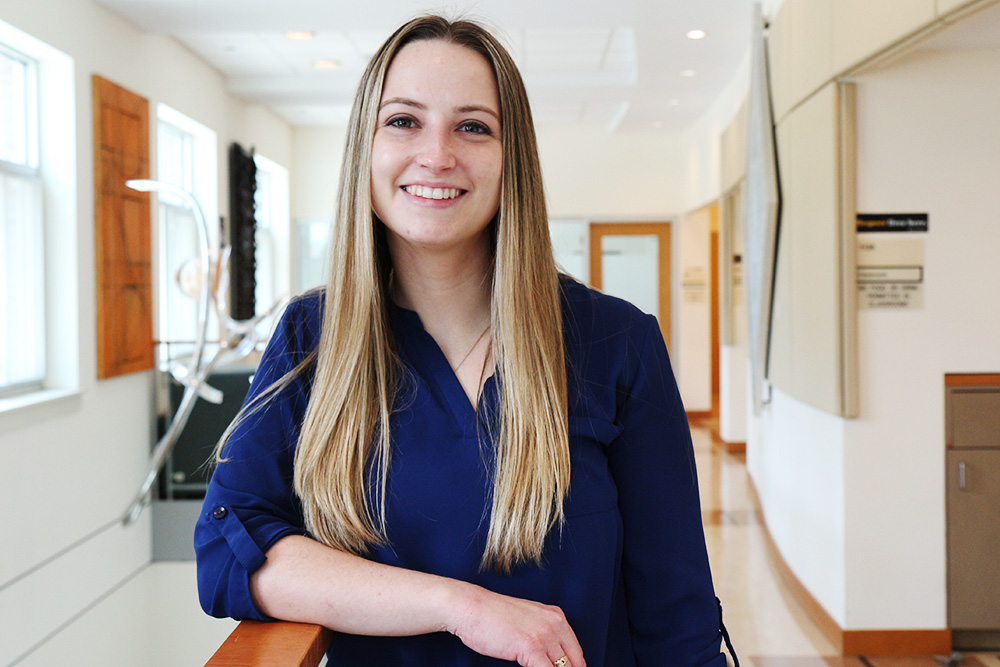Making Their (Interprofessional) Case

Mimicking real life, the case is tough, complex, and expansive:
Their home decimated by a hurricane, a Puerto Rican family moves to mainland U.S. to begin anew. But their fresh start comes with a host of complexities made more challenging due to language and economic barriers, as well as their web of housing, employment, educational and healthcare needs.
Interprofessional teams of healthcare students are, however, eager to help the fictitious family, and nearly 30 have lined up to develop plans as part of the University of Minnesota's 2021 Clarion Case Competition, including UVA's own "Team Spindalis," which includes clinical nurse specialist MSN student Nick Teeman, psych-mental health nurse practitioner student Melanie Levine, public health sciences student Caroline Conrad, and school of medicine student Marina Chase.
"The competition is designed so that no one team member can do it on their own, no matter how smart, talented, or motivated they are," explained Teeman, who calls his presence on the team a happy accident. "It forces us to surrender to the team dynamic and realize that we are part of something bigger than ourselves.
"It's also been fun," he added. "I love competitions of any kind, and I can't wait for us to test ourselves."
400,000+
Preventable deaths due to medical error and miscommunication (Lown Institute study)
Healthcare solutions, say Team Spindalis's advisers Julie Haizlip, Beth Quatrara, and Natalie May, are rarely the work of just a single discipline, but instead require a complex choreography of help across professions. Devloping a solid understanding ofeach profession's distinctive role, and having a chance to practice collaborating with them, then, is a critical ingredient in every health professions student's learning. It's precisely the work that UVA's Center for Interprofessional Collaborations (CIPC) does.



Clarion is a University of Minnesota student group established in 2002 out of the Center for Health Interprofessional Progams, and opened up the case competition nationally in 2005. For 2021, 29 teams are competing, including UVA's team.
Each team consists of four students from at least two disciplines. All groups are given a case study and charged with creating a root cause analysis, which they present to a panel of interprofessional judges that evaluates them in the context of real-world standards of practice.
Given physical distancing requirements during the pandemic, Team Spindalis - named for Puerto Rico's spectacular national bird - worked together and with their advisers virtually, though they gathered at the School of Nursing recently to meet in person and bump elbows in solidarity in advance of the competition.
"This public health case approach continues to demonstrate that none of us, regardless of the setting, should be working in silos."
Prof. Beth Quatrara, CIPC co-director, associate professor, and Team Spindalis' adviser
"This group – who didn’t really even know each other when we started – quickly worked together to define the task ahead of them, identified the strengths they each brought to the project, and then determined where each could best contribute," said Haizlip, who said the team inspired her as a teacher. "The synergy that developed as they worked together was obvious, and their proposed solutions far exceeded our expectations, truly representing the input and expertise of nursing, medicine, and public health."
"To listen to them share ideas and experiences, to watch them build as a team around a central mission, and to observe them respect and integrate each other's expertise and perspective," added Quatrara, "it's been so affirming."
###
